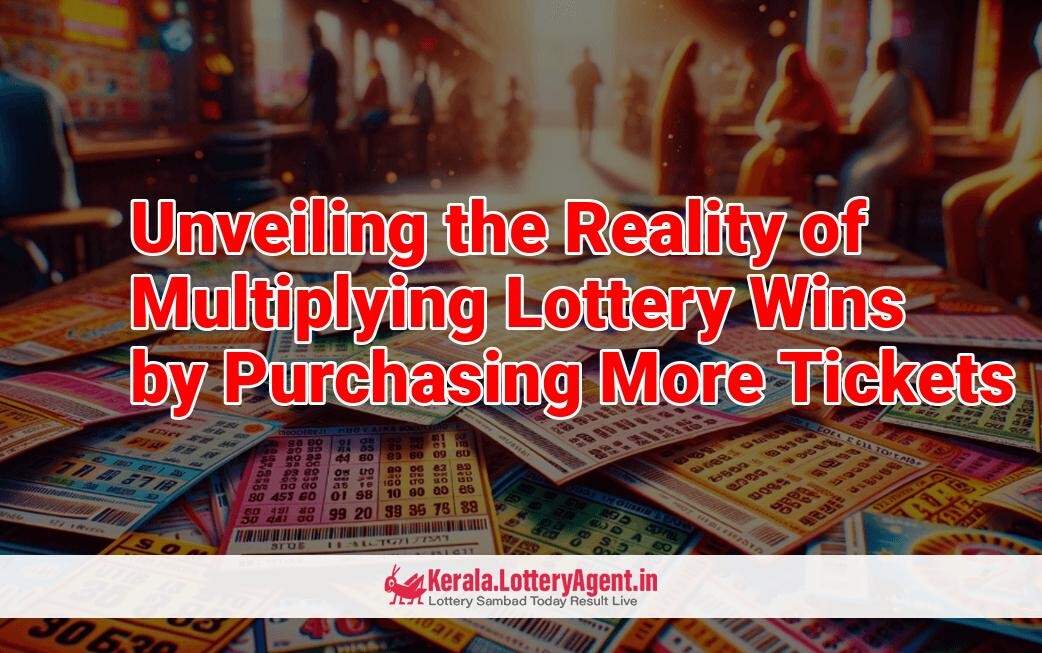
The allure of the lottery lies in its thrilling nature and the tantalizing prospect of a jackpot that can transform one’s financial life. The glittering hope of this windfall, however, is dimmed by the daunting odds stacked against the player. With winning probabilities like one in a million or even slimmer, at one in a hundred million, enthusiasm may wane as the pursuit seems fruitless.
Despite the long odds, many lottery enthusiasts ponder if purchasing additional tickets could bolster their chances of claiming the coveted prize. For those seeking enlightenment on this matter, this article presents a comprehensive analysis. It delves into the intricacies of lottery odds and explores the strategy of multi-ticket purchases in the quest for success.
To lay the groundwork, let’s consider a theoretical scenario: Playing the US Powerball requires matching five numbers plus an additional unique number from the Powerball draw. The chance of winning the grand prize with just one ticket sits at around 1 in 292,201,338. Acquiring two tickets nudges those odds to 2 in 292,201,338, and buying three pushes them to 3 in 292,201,338.
A deeper dive into the numbers reveals a stark truth. To guarantee victory in the US Powerball, one would have to buy 292,201,338 tickets, each with a unique number combination, for the staggering sum of $584 million. This approach is clearly out of reach for the average participant and, quite frankly, irrational even for those with the means. Additionally, unless the jackpot significantly exceeds $584 million, the return on such an investment would be unfavorable.
It’s imperative to approach the lottery with realism and practicality. In the grand scheme, the difference between odds of 1 in 292,201,338 and 2 in 292,201,338 is negligible. It is more astute to adopt different lottery strategies rather than stockpile tickets.
From a pragmatic viewpoint, diversifying one’s lottery participation over multiple draws or different lotteries altogether may yield better chances. For example, instead of doubling down on tickets for a single draw, participating in both US Powerball and Mega Millions could be more advantageous.
On the flip side, buying more tickets does only a slight increment in your odds, as the sheer quantity of possible combinations in games like Mega Millions – which has odds of 1 in 302,575,350 – remains your towering adversary. The financial outlay to secure all combinations in Mega Millions is in excess of $605 million, again casting doubt on such a strategy.
Richard Lustig, a noteworthy figure who claimed lottery victories seven times, attributed his success to playing lotteries with better odds rather than indiscriminately joining every draw. Smaller lotteries can offer more favorable chances, albeit with smaller jackpots.
In the pursuit of probability manipulation, the record for the most lottery tickets purchased by a single individual stands at 307,000. This monumental purchase was made on behalf of Gerald and Majorie Selbee by Jerry Dagrosa in 2011, for the Massachusetts Cash Winfall lottery, costing them $614,000.
What, then, is the advised number of tickets to purchase? Experts suggest maintaining moderation by buying a single ticket more frequently over various draws, as mass buying does little to shift your odds significantly unless you’re willing to invest in a vast quantity of tickets.
As for purchasing separate tickets or sticking to the same draw, individual tickets for different draws offer renewed opportunities without affecting the individual odds of each ticket. And when the question arises of where to obtain these coveted slips of hope, the internet stands out as the premier platform. Online purchases from sites like TheLotter, LottoAgent, and Lottofy offer unrivaled convenience, ease, and security.
To demystify the distribution of winnings, it’s worth noting that lottery corporations do not possess foreknowledge of where the large winnings will land. The process is random, maintaining fair play for all participants.
If someone were to shell out for 1,000 lottery tickets, their chance of winning would be 1,000 in the total number of possible combinations. For Mega Millions, that would translate to 1,000 in 302,575,350. Seeking a temporal advantage? The opportune moment to buy a lottery ticket may coincide with jackpots rolling over to substantial amounts, times of lottery bonuses and discounts, or during months like July, which some consider to be auspicious based on historical winner data.
In conclusion, the lottery is a game of chance, and while purchasing more tickets provides additional shots at glory, it is crucial to play responsibly within one’s budget. Multiple tickets can theoretically increase one’s chances, yet the essence of the lottery remains unchanged – a sprinkle of luck in a vast ocean of possibilities.











